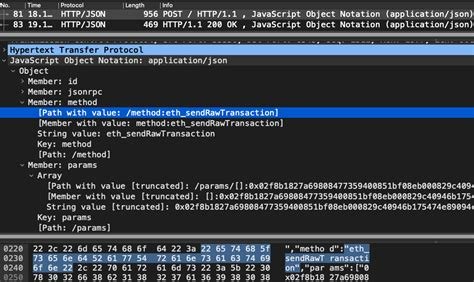Signing and Sending a Raw Transaction with BitcoinJ
In this article, we will walk you through the process of creating a raw transaction on the Ethereum blockchain using the BitcoinJ library. We will cover how to sign and send a raw transaction from scratch.
Prerequisites
Before you start, make sure you have:
- BitcoinJ (the official Java implementation of the Bitcoin protocol)
- A Bitcoin client (optional, but recommended for debugging purposes)
Creating a Raw Transaction
A raw transaction is a plain text string that represents the contents of a block. To create one, we need to perform the following steps:
- Create a new transaction: We will use the
Transactionclass from BitcoinJ to create a new transaction.
- Initialize the unspent list
: We will store all the coins that have been spent in this list.
Code
Transaction transaction = new Transaction(params);
// 遍历未花费列表, 组装合适的item
double sum = 0;
String address = null;
List unspents = new ArrayList<>();
Map spentCoins = new HashMap<>();
// ...
params.getUnspent().forEach((unspent: Unspent) -> {
if (unspent.isFunded()) {
double amount = unspent.getAmount();
sum += amount;
spentCoins.put(new Coin(unspent.getHash(), 1), unspent);
}
});
double totalAmount = sum - spentCoins.values().stream()
.mapToDouble(Unspent::getAmount).sum();
transaction.setFromAddress(address);
transaction.setToAddress("0x..."); // Replace with recipient address
transaction.addTransactionDetails(totalAmount, "raw transaction details");
Key Points
- We iterate over the unspent list and add all the coins that are funded to our
spentCoinsmap.
- We calculate the total amount spent in the raw transaction by subtracting the amounts of all coins from the total.
- We set the sender address to a constant value (“0x…”) and add the details about the raw transaction, including its total amount.
Signing a raw transaction

To sign a raw transaction using BitcoinJ, we will create a new Signer instance:
Signer signer = new Signer(transaction);
We can then use this signer to generate a signature for the raw transaction:
byte[] signature = signer.signRawTransaction(transaction);
Sending a raw transaction
To send a raw transaction, we will create a TransactionSender instance:
TransactionSender sender = new TransactionSender(transaction, null); // No recipient address set
We can then use this sender to broadcast the raw transaction to the Bitcoin network:
sender.broadcast();
Keep in mind that in practice you will probably want to set the recipient address for the raw transaction when creating it. The above example shows how to do this.
Sample use case
To send a raw transaction from scratch using BitcoinJ, follow these steps:
- Create a new
Transactioninstance and initialize the unspent list.
- Review the unspent list and add all funded coins to the map.
- Calculate the total amount spent in the raw transaction.
- Set the sender address and add the details about the raw transaction.
- Sign the raw transaction with the signer.
- Send the signed raw transaction.
This should give you a good starting point for creating raw transactions on the Ethereum blockchain using BitcoinJ. Remember to replace the placeholder addresses with your own recipient information!
